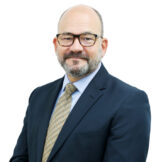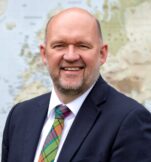Schools and recruitment agencies are opting for a new approach including local hiring to address the growing demand
Dubai, Jan 06, 2022: Schools across the UAE are experiencing shortage of teaching staff amidst growing student enrollment and shortage of international candidates.
The demand for teachers has shot up as UAE government schools had not recruited new teachers for about 18 months during remote and hybrid learning.
In addition to an increase in student enrolment, older teachers taking early retirement during the pandemic has also caused a strain on available resources. The pandemic and its effects had also limited the number of international recruitments, thereby escalating the problem further.

Nic Beesley, Senior Vice President – Human Resources, GEMS Education says, “Driven by an increase in enrolment numbers at many of our schools, there has been a higher number of midyear vacancies than usual, and we are currently seeing a small shortfall of immediately available teachers.”
UAE schools are experiencing an increase in student enrollment and the numbers are expected to marginally increase during the next decade. According to latest insights from strategy consulting firm L.E.K, the K-12 market in the UAE is set to experience a 2- to 3-percent growth in enrollments per annum during the next 10 years.
New student enrolments in Dubai private schools is estimated to reach about 345,000 by academic year 2031, while enrollments in Abu Dhabi private schools is expected to touch 176,000.

Roddy Hammond, Founder & CEO, Worldteachers Recruitment Ltd is of the opinion that since the UAE government schools did not hire teachers for around 18 months during remote and hybrid learning, schools are in need to fill the roles that are vacant.
Agencies feel the heat
Recruitment agencies meanwhile are of the view that despite an increase in demand for teachers globally, UAE, especially Dubai, continues to remain an attractive destination for international teachers.

“The market for teachers has always been quite competitive, especially for international teachers. You are not competing just in the UAE, you are competing globally,” says Ashwin Assomull, Partner at LEK Consulting, adding that the new regulations and the four-and-a-half day work week could make the UAE a more attractive destination.
According to him, the market has been plagued by supply shortages. “The supply situation is not satisfactory. Demand continues to grow because private schools across the world are continuing to grow,” he says.
Assomul feels that the gap between demand and supply of teachers could be due to many older teachers having retired through the pandemic.

Fiona McKenzie, Carfax Education says, “Restrictions during the pandemic meant many teachers were unable to travel home for the past two years and we are hearing that this has prompted many to make the move back to their home countries.”
Local vs international recruitment
Many schools, especially those managed by large groups, are hiring new recruits locally.
According to Assomull, the UAE has some of the larger school groups and institutions and they are very attractive to teachers. “The reason being that they offer them a clear career progression and growth. It gives an opportunity for teachers to potentially move on from teaching to managing and running schools and moving into different roles,” he adds.
There are mixed views regarding finding teachers with adequate skill sets in the UAE. While Beesley says that the UAE has a talent pool of highly experienced, qualified teachers and they draw on this whenever possible, Hammond is of the opinion that it is not easy to find any teachers as there is a shortage of supply globally. “There are simply not enough teachers being trained. It is particularly hard to find secondary/high school subject specialists in more or less every subject,’ he argues.
Schools are also advertising for new roles much further in advance and targeting candidates already based in the country instead of opting for international hiring. “We are placing greater emphasis on forecasting future growth to allow a bigger lead time for recruitment,” says Beesley.
Similarly, schools are also expanding the mode to send vacancy alerts using digital and local media.
Several schools and recruitment agencies are now opting for a new approach to teacher recruitment. Online recruitment has emerged as the new normal for many. Agencies and educational institutes are conducting virtual interviews.
Beesley says that they had to resort to conducting interviews online with some new hires initially joining them remotely before arriving in the UAE.
UK teachers remain the highest in demand followed by Ireland, US, Canada, Australia, New Zealand and South Africa.
A growing number of schools are also acknowledging the relevance of diversity. By taking a global view, more and more schools are moving towards a staff mix in their recruitment practices. “There seems to be more of a push towards diversity and inclusion with less discrimination in the market. If teachers have relevant experience and a good proven level of English language, then nationality is not seen as much of a factor,” says Hammond.
All levels of subjects are in demand in the UAE with regard to subject teachers. “Secondary/high school subjects in demand include English, Maths, Physics, Computer Science and Business,” says Hammond adding that “PE is experiencing a higher demand due to many PE teachers having to leave their job during the pandemic, so there is a need to refill many of these roles.”
According to Beesley, there is a greater demand for core subject specialists, including Maths, English, Physics, Business and Music. “More recently, teachers specialising in Robotics and AI-related subjects have also come to the fore,” she adds.
Teacher training
Meanwhile, training requirements for teacher recruitment have witnessed some changes since the pandemic. All teachers in the UAE are now required to be licensed under the Teacher Licensing System (TLS). McKenzie says that it requires them to pass two tests – one test on the theory and practice of teaching and the other on their subject-matter. Moreover, Dubai has additional test requirements including areas such as safeguarding and diversity and inclusion.
In terms of other qualifications, for UK curriculum schools in the UAE, training requirements remain the same – an education degree or a specialist subject degree and a PGCE with around two years teaching experience in a school with a relevant curriculum, she adds.

Sheryl Rogers, Senior Manager – Digital Professional Learning and Development, TELLAL Institute of Teacher Learning and Leadership for All says, ”For many schools, the pandemic caused the professional development aspect to be put on hold, while training became the most urgent need for school staff.”
Similarly, school preferences for training have also changed. Schools know that the pandemic is a long-term situation and are adopting a flexible route. “Now that we know the pandemic is a long-term situation, schools and teachers want a more flexible approach to their development and as budgets have changed, they are seeking approaches that are considered more value for money,” says Rogers.
Training institutes are providing online learning modules where teachers have the self-assessment of their current practice so they can identify their next learning steps themselves. “We have rebuilt our online modules to accommodate a more ‘Netflix-style’ approach and offer what we consider to be on-demand learning. At the same time, we make sure teachers know what they need to make their own decisions about the ‘what, where and when’ of their professional development. This is a much more learner-centred approach and allows teachers to make their own decisions and take responsibility for their own learning,” says Rogers.
- With inputs from Ritika








